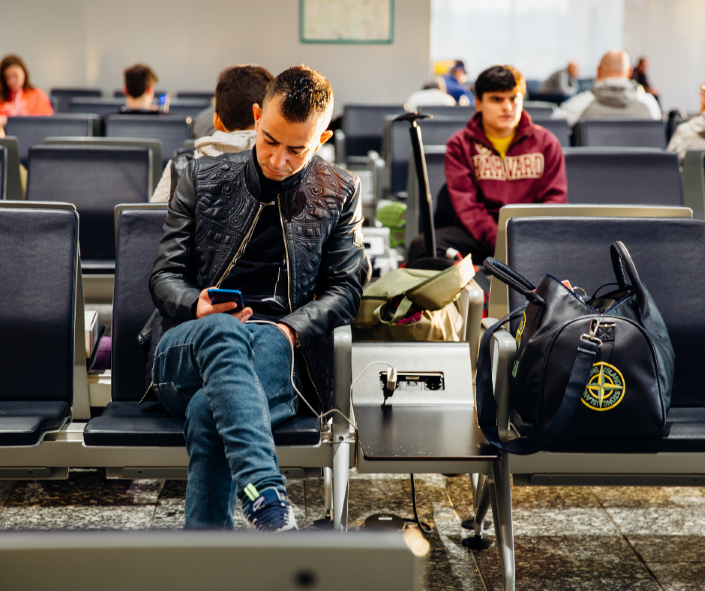Hackers are targeting travelers at airports—here’s how you might be handing over your data without realizing it.
When most travelers think of the TSA, the first images that come to mind are airport security checkpoints, bag scans, and pat-downs. But in 2025, the Transportation Security Administration is warning that the biggest threats aren’t just in your carry-on—they may be hiding in your phone and laptop.
Be sure to read all the way to the bottom to receive a FREE gift!
——————————————————————————–
Earlier this year, the TSA flagged two major technology mistakes travelers keep making at airports, mistakes that hackers are exploiting to steal sensitive personal data. Here’s what every flyer needs to know:
1. The Danger of Public Airport Wi-Fi
Free airport Wi-Fi might seem like a traveler’s best friend, but according to the TSA, it’s one of the biggest cybersecurity risks. Hackers can create fake Wi-Fi hotspots that look legitimate, or exploit loopholes in official airport networks.
Connecting to unsecured Wi-Fi could allow cybercriminals to:
- Steal your personal information
- Capture credit card and banking details
- Install hidden malware on your device
TSA’s advice: Never enter sensitive information like credit card numbers, passwords, or booking details while on public Wi-Fi. Instead, use your phone’s data plan or protect yourself with a VPN (Virtual Private Network) that encrypts your connection and hides your activity.
2. USB Charging Ports = Data Theft Risk
Those free USB charging ports scattered across airport terminals may seem convenient, but they can expose you to “juice jacking.” This cyberattack happens when hackers use compromised USB ports to steal data or install malware on your phone.
TSA’s advice:
- Stick to wall outlets, which only deliver power (not data).
- Carry a portable charger or power bank.
- If you must use USB ports, invest in a USB data blocker—a small device that allows charging without exposing your data.
3. Airports Are Targets Too
It’s not just passengers who are vulnerable. Hackers have also targeted airports themselves. In one case, a cyberattack disrupted operations at Seattle-Tacoma International Airport, leaving more than 1,400 travelers stranded.
The FBI recently warned that cybercriminal groups are actively seeking to bypass airport systems, potentially exposing crew schedules, passenger data, and sensitive operational information.
Stay Safe While Traveling
As cybersecurity threats at airports grow, travelers need to be more vigilant than ever. By avoiding public Wi-Fi, skipping USB charging stations, and using simple tools like VPNs and data blockers, you can dramatically reduce your risk of being hacked on the go.
The TSA’s message is clear: In today’s world, protecting your data is just as important as protecting your luggage.
————————————————————————–
Do you love to travel? Are you always keeping up with the latest travel trends? Becoming a travel agent has made such a huge and positive impact in my life. I used to dread getting up every morning and going to work. Now I look forward to it!
If you want to turn your love for travel into an exciting career, grab my FREE guide on how to become a travel agent. And as an added BONUS, you will get an invite to a LIVE WEBINAR hosted by a travel agent where you can get all your questions answered. The details are in the guide!
GET YOUR FREE GUIDE ON HOW TO BECOME A TRAVEL AGENT HERE!




